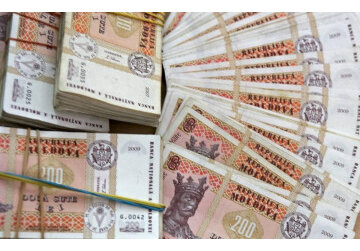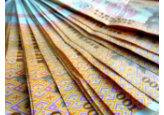
The rise in the price of money by the NBM is aimed at curbing consumption and encouraging savings - IDIS Viitorul.
The increase by the National Bank of Moldova of the base rate applied to the main short-term monetary policy operations has several consequences, and it is aimed at curbing consumption and encouraging savings. Veaceslav Ioniţă, an expert on economic policy at the IDIS Viitorul Institute for Development and Social Initiatives, stated this. According to him, the increase in the base rate has become an obstacle to all types of borrowing, including investment. The expert recalled that recently the NBM raised the base rate for the 10th time this year, and it reached 21.5% per annum. “The last time we had a base rate higher than today, in December 2000, when Moldova experienced a deep crisis associated with the depreciation of the national currency, and there was extremely high inflation. Since then, the base rate has been reduced. There were a number of increases, but then we did not reach the level of 21.5%,” said Veaceslav Ionita. According to him, due to the increase in the base rate, the average interest rate on new loans issued by banks over the past year increased by 70%. “If last year the average interest rate was 6.8%, now it has reached 11.3%. If last year consumer loans were issued at the lowest basic bank rate of 4.4%, without other additional payments, now they are offered at 13.7%. For individuals engaged in entrepreneurial activities, loans became more expensive by 50%, the rate increased from 9.1% to 13.8%. Mortgage loans for individuals also rose in price by 50% - from 6.6% to 9.9%, and loans for legal entities increased by 27% - from 8.2% to 13.7%. The monetary policy of the NBM led to a differentiated appreciation of money, hindered consumer loans and loans taken by individuals engaged in entrepreneurial activities. For economic agents, the growth is the lowest,” said Veaceslav Ionita. The economist argues that the government is suffering the most because of the rising cost of loans, which this year approved the budget with the largest budget deficit in the history of the country, which needs to be covered by external loans that are lagging, and domestic loans. The analyst recalled that the government decided to stop borrowing from Moldovan banks, because if last year it took loans at 5.53%, now the interest has reached 20.5%. “Money has risen in price for the state the most, then consumer loans for the population, loans issued to the entire population, but for purposes other than consumption, and for economic agents, the rise in price of loans was the lowest,” the economist stated. He also mentioned that the NBM, with its monetary policy, curbed interest in loans and encouraged deposits, and money became more expensive in terms of savings. If last year the average interest rate on deposits of individuals was 3.5%, now it has increased to 11.4%. “While last year, Moldovan citizens and Moldovan economic agents received monthly loans totaling 890 million lei, this year, loans in the amount of about 639 million lei are provided monthly. Last year they amounted to 4.4% of GDP, now they are 3%,” said Veaceslav Ionita. The expert also said that last year, economic agents monthly increased their debts to banks by 343 million lei. This year, even though money has risen in price, but since inflation is much higher than bank interest, business entities continue to take loans, even more than they took last year. This year, they received access to monthly loans in the amount of 400 million lei. According to Veaceslav Ionita, this year we have an unprecedented situation. This is a 7 month decline of internal debt by 1.3 billion lei. The government not only does not take out internal loans, but also takes out external loans or money from budget revenues to reduce its internal debt because it has become too expensive. This year, the government must pay more than 3 billion lei only in the form of interest on loans. In 2020, the government borrowed mainly domestic funds, receiving loans for 478 million lei. In 2021 - 337 million lei, and in 2022 domestic lending was negative and amounts to minus 176 million lei per month. The economist also noted that an increase in the price of money, on the one hand, discourages consumption, and on the other, encourages savings. “When the war started in Ukraine, Moldovan citizens took money from banks. If until last year, new deposits averaged 1 billion lei per month, in June they reached 2.2 billion lei. Moldovans go and deposit twice as much money in the bank as they did a year ago,” the analyst said. He concluded that the increase in the price of NBM money is aimed at curbing consumption. But the undesirable side effect has been on the government, which is no longer borrowing from banks, but returning its domestic debts. “It was calculated that after the rise in the price of money, citizens and economic agents may have difficulty making payments. If in the first quarter of this year there were 32% of loans with delays in payment, then at present they have increased to 35%. Business entities' overdue loans amounted to 46% on average. Now it's 48%. This is a short term effect. The best payers of the banking system are citizens. The volume of loans to citizens who have problems with repayment is 3 times lower than that of economic agents,” the economic analyst concluded.// 15.08.2022 — InfoMarket







